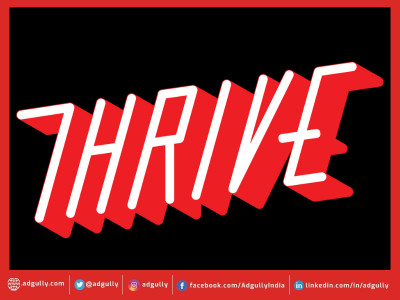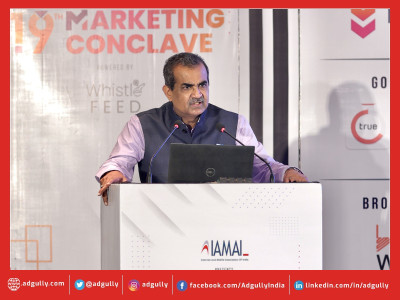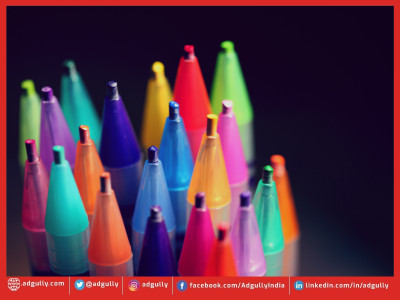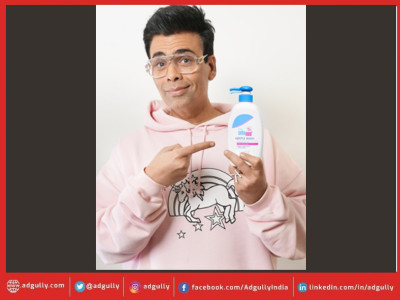Brands need to be prepared for consumer scrutiny of science-backed claims: Experts
Post the Coronavirus pandemic, a major shift that has come in consumer behaviour is the fact that they are relooking at the ‘Nutritional Information’ and ‘Ingredients’ labels of brands. Consumers are scrutinising the efficacy of products based on a single priority – their health and wellness.
Advertising claims are much more likely to mention how their products are scientifically tested and make bold claims of 99.9% effectiveness, but there are fifty shades of grey in that remaining 0.1%.
Customer loyalty has taken a huge hit post the pandemic and consumers were willing to buy whatever necessities were available, giving a surge to local brands and their products. Now, as things are settling down, these challenger brands are vying for market share against their larger competitors by making bold claims and directly comparing their products with competitors.
What’s got the goat of these larger brands is that competition is not challenging them based on superficial features like fragrance, cost or other perceived benefits, but on scientific claims which are tougher to refute.
On Friday, January 22, 2021, Adgully organised a TwitterChat on the topic ‘Science based claims in advertising – how do they work?’ We were joined by an expert panel who discussed the brand strategy, types of claims, legal precedents and consumer awareness about products that make such claims.
Aazmeen Kasad, Advocate and Professor of Law (@Aazmeen)
Gaurav Nabh, Founder & CEO, Korra India (@gauravnabh)
Konark Gaur, Head of Marketing - India, Sebamed (@konarkgaur)
Madhur Acharya, Head of Marketing, Wow Skin Science (@madhuracharya07)
Nilanjan Majumdar, Executive Vice President, Insights, Division at Kantar (@nilan_jan)
Prachi Mohapatra, CMO - fbb, Future Group India (@Prachi1907m)
Post-COVID-19, we have seen brands in the media environment make a host of claims from ‘immunity booster’ to ‘protection from 99% germs’ specifically targeted to allay the consumer concerns around the virus. In the new normal world, will brands and marketers make such claims with increasing regularity?
Aazmeen Kasad: Numerous brands have been making immunity related claims and offering protection from viruses/bacteria/germs, since COVID19. It is here to stay for sometime in my view.
Gaurav Nabh: Brands are slowly and subtly training audiences to look for facts and claims in advertising, making it a fixture in advertising for some time to come at least.
Nilanjan Majumdar: Marketers would like to reassure consumers that they are making a safe choice. Post-COVID-19, importance and relevance of claims has become more critical, as there is heightened anxiety in consumers. We have seen brands claiming immunity or being germ resistant, even for categories which have not done it in the past.
What due diligence process must a brand follow before they can make such claims in the media?
Prachi Mohapatra: Clinical trials, lab testing and research are a tried and tested reliable practice. These processes have to be mandatory and backed by authenticated associations.
Madhur Acharya: Brands have a responsibility of being transparent with consumers. Due diligence is conducted by credible research agencies; certification and affirmation backed by proper data sampling is important when making claims.
Konark Gaur: Claims that are certified by an accredited agency, backed by solid data, should be presented to consumers and not an output of a certain consumer research done in order to present a point of view of the brand, which might not be true in a sense.
Nilanjan Majumdar: At Kantar, we always advise that claims should be backed with data. There are usually two types of claims – one which is all about consumer practices to build relevance or credibility for brands, and second is about scientific tested results. In both cases there should be proofs and validation.
How persuasive are science backed claims? What media strategy would amplify such claims to its fullest?
Nilanjan Majumdar: Kantar has done multiple studies, which involve checking of claims and we have seen specific claims work better than generic ones and quantifying the benefit works better, for example, 1 cap full or 1 spoon full gives XXXX. Generic claims like ‘100% satisfaction guaranteed’ could be less effective to help consumers make a decision in the favour of a brand.
Gaurav Nabh: The most persuasive claim is one which can be replicated and validated. Internet and digital should be a key aspect of brands media approach to amplify such claims. Using Digital to educate and encourage consumers to test/ replicate the claim, thereby helping validate the claim.
Konark Gaur: If the science-backed claim is solving a real consumer problem, it will find acceptance. And if the product delivers, I believe word of mouth is the best media strategy which adds credibility and authenticity.
Prachi Mohapatra: Fact/ data backed claims equates trust. In a click bait ecosystem, these claims lend huge credibility to content. Such strong claims remain media agnostic and find a fair reach, response and respect on any platform.
Do science backed claims blur the lines between fact and fiction?
Konark Gaur: Science-based communications are often black and white, giving consumers a clearer picture. However, it needs to be presented in a story that normal consumers can understand. A lot of deliberation should go in creating the right communications that remains within the boundary.
Aazmeen Kasad: One grey area is 'Comparative Advertising' which while it is permitted legally in the interest of consumer awareness and is resorted to frequently by advertisers; is fraught with several legal do's and don'ts.
Prachi Mohapatra: It is easy to get excited and swayed with fabulous claims for storytelling. It is an absolute must for marketers to be sure about extent of claims, data backing, with exact terminologies and then create story. Legal vetting is of prime importance.
Nilanjan Majumdar: Claims can induce consumer preference for particular brand or product, however, should be clearly and unambiguously stated and backed by necessary validation. Usually there are multiple clearance processes necessary for making such claims and marketers are usually sensitive to those.
Do consumers understand the scientific jargon used in such communications?
Prachi Mohapatra: Consumers do their homework. For everything else there’s the Internet. With more than 40% of the population connected, it’s not what one knows now, it’s what one can know in the next two seconds.
Konark Gaur: Consumers don’t buy what they don’t understand. Jargons, if used, need to be simplified and explained. That is the duty of the brand if they are introducing new knowledge.
Nilanjan Majumdar: Scientific jargons per se can sound alien to consumers. Brands have coined terms which became popular and identifier for the brand and have worked to gain recognition.
What is the journey that consumers take to learn the truth about products they use?
Gaurav Nabh: Reviews on YouTube, Amazon, Big Basket are the new ‘back of the label’. There are enough smart people on the Internet today who are sitting to question claims. Brands beware. Consumer awareness has evolved beyond traditional markers like ‘back of the label’ post-COVID-19. Are brands ready for consumers who are searching and researching about their claims online?
Konark Gaur: With every passing year, consumer engagement with back of the pack is increasing and they are asking for more information, for example, they should ask the pH of their soap and all soaps should declare it. All these labels are certified by Government agencies and hence, are authentic. Reviews available on various platforms could be part of brand promotion and hence, short of trust.
Nilanjan Majumdar: As consumers mature in the marketing environment, they become more and more cynical and will not buy into superficial claims. They need proofs and real user testimonials to be convinced.
Aazmeen Kasad: Law enforcers, SROs, Industry bodies and NGOs are working ceaselessly to enhance consumer awareness on products. It will witness an upwards trajectory in my view.

















Share
Facebook
YouTube
Tweet
Twitter
LinkedIn